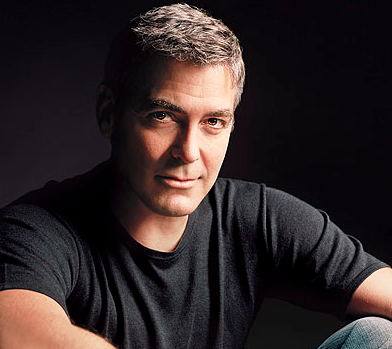NPR interviews George Clooney
The radio was on this morning, my train of thought lazily moseying along a conversation between George Clooney and National Public Radio’s Robert Siegel.
I’ve always been ambivalent about Clooney, who recently appeared in the Alexander Payne-directed The Descendants.
As much as the off-screen Clooney is exceedingly likeable, the characters he plays leave me indifferent.
He’s probably epicurean, judging from that house by Lake Como in Italy that he virtually lives in (most Hollywood royalty would be satisfied with their Bel Air manse and the March skiing trip to Gstad). He’s someone with whom you would gladly have an indulgent day of food and anecdotes. During their nine-minute or so conversation on the air, Clooney told Siegel about a motorcycle trip up a mountain near his Italian home, with strong coffee and croissant at the top—these are all outward signs of a knowingness.
On-screen, however, Clooney imbues his characters with a deliberate kind of dullness—and I ain’t sure why. Maybe he became an actor in spite of himself, the trade giving him entrée into the world of filmed entertainment, to be later parlayed into writing screenplays and directing. Because it’s never a simple thing to say that Clooney, a full-on movie star, carried a movie. Like with Matt Damon or Mark Wahlberg, what mostly sets Clooney apart from the rest of a movie’s cast is his reputation. The acting remains dutifully adequate.
Later on the radio program the two men talked of aging and actors, with Clooney agreeing that outward signs of wear-and-tear can be cruel to the performer on screen. He told Siegel (who sounds a lot like Alan Alda), “as you get older, the one thing you have to understand as an actor is change is inevitable. There’s a certain cruelty to being on the big screen as your eyelids start to sag and your hair falls out or turns gray. You have to constantly be looking forward. Writing and directing is something you can do well into your old age.” Just you make sure you don’t get all sentimental and sirupey, like Clint Eastwood, George. After his smashingly successful Gran Torino, Clint Eastwood’s movies have meant a lot of schmaltz glistening on top of cinema screens.
In the same vein, Siegel mentioned Cary Grant and Paul Newman, the latter who retired from acting at 62, the former who did not mind playing character actors in the latter part of his life. I wonder if Clooney was aware that Siegel was comparing him to them.
When asked by Siegel what it’s like to experience such a level of fame anywhere he went, Clooney pointed to our culture of instant gratification, when adoring fans capture images everywhere they go. And it is laughable, isn’t it? (I’m guilty just like anyone else). Clooney responded, “everyone is always recording things instead of really trying to meet people face-to-face.” So true. He added, “we’ve lost our sense of actually experiencing things, we’re constantly, constantly recording things.”
He described the red carpet meet-and-greets with fans clustered like sardines behind a fence, observing, “you’ll reach out to shake their hand and they have a camera […] and they don’t even get their hand out ‘cause they’re recording the whole time. He added, “you can tell people you’ve recorded Brad Pitt but it’d be very hard for you to say that you’ve met him, because you’re watching it all through your phone.”
And yet, in spite of underwhelming on-screen performances, Clooney has shown scrupules in choosing movies and roles—except for that Batman & Robin movie, which he himself defines as a setback. He wrily told Siegel, “I’m not going to do any more films in rubber suits, I’ve decided.” He added, “Failures are infinitely more instructive than successes.”





